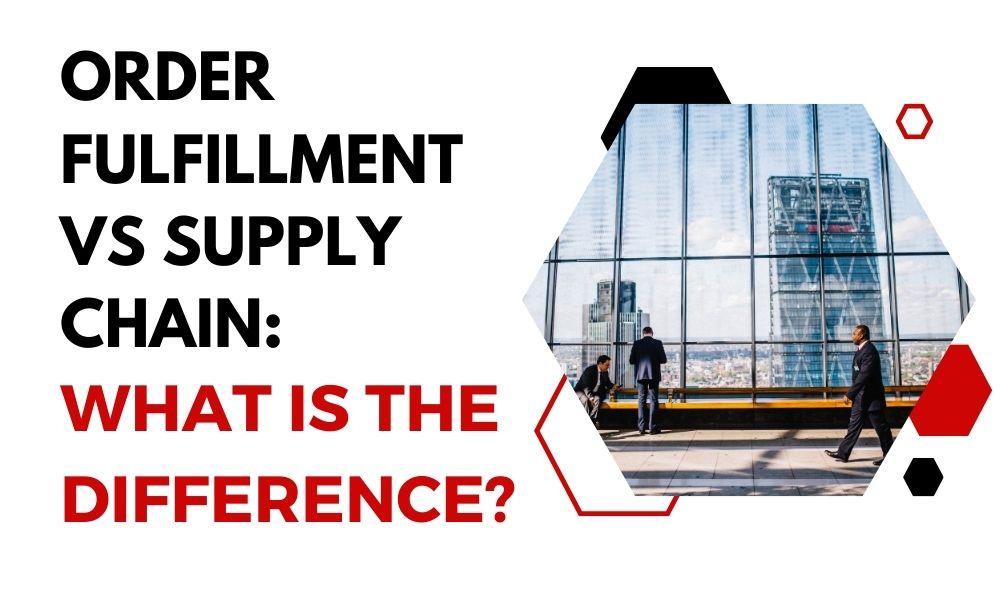Many entrepreneurs are confused about the difference between order fulfillment and supply chain management. It’s easy to see why, as these two terms often get used interchangeably. But in reality, there are key differences that every eCommerce seller should be aware of. Let’s dive into what distinguishes order fulfillment from supply chain management and how both can help boost your profits.
The Difference Between Order Fulfillment and Supply Chain Management
Order fulfillment
Order fulfillment is all about getting the right product to the right customer at the right time—in other words, it’s the process of fulfilling customer orders. This includes receiving orders from customers, packaging them up, labeling them correctly, and shipping them off to their destination. This is an important part of any eCommerce business’s operations as it helps you ensure orders are delivered on time and helps build positive customer relationships.
Supply Chain Management
On the other hand, supply chain management (SCM) looks at the big picture when it comes to managing your operations. SCM involves working all aspects of a company’s inventory and production process in order to maximize efficiency while reducing costs. SCM also looks at activities such as sourcing raw materials, negotiating with suppliers for favorable terms, setting up manufacturing processes and warehousing systems, arranging transportation for finished products, monitoring stock levels in warehouses or retail locations, and so much more! In short, SCM provides insight into how everything fits together so that you can optimize your processes for maximum efficiency.
The Benefits of Order fulfillment and Supply Chain Management
Both order fulfillment and supply chain management are essential components of any successful eCommerce business. By leveraging both services you can reduce costs while improving customer service which will ultimately help increase sales and profits. Additionally, by outsourcing these services to a third-party provider you can free up valuable time that would have otherwise been spent on executing manual tasks related to order fulfillment or supply chain management – allowing you to focus on more important aspects of running your business such as marketing or product development instead!
Role of warehouses and fulfillment centers in eCommerce
In today’s era of digital transformation and fast-paced consumption, the role of types of warehouses and fulfillment centers in eCommerce is becoming increasingly vital for online retailers. As businesses focus their resources on selling more products, at a higher velocity and with broader reach, warehouse management presents a competitive advantage – or conversely, a major bottleneck – in serving those customers effectively.
By optimizing processes within these facilities and equipping them with the right tools to support an eCommerce operation, entrepreneurs can better manage operations while preserving costs associated with day-to-day shipping activities. It’s important to note that warehouses are helping India’s top eCommerce sellers truly scale their business operations as well as gain customer loyalty through quality customer service optimization.
How important are different types of warehouses and fulfillment centers for online merchants
Warehousing and fulfilment centres are key elements of a successful supply chain management strategy. They allow businesses to store their products in an organized and secure manner, allowing them to quickly retrieve them when needed for orders or other business operations. Warehouses also serve as transit points between the manufacturer and the customer, enabling faster order fulfillment.
Fulfillment centers, in particular, are an important part of successful supply chain management. They manage all aspects of the product fulfillment process, from receiving and verifying shipments from suppliers to packing and shipping orders to customers. This streamlined process helps to ensure that orders are fulfilled quickly and accurately.
In today’s world, consumers expect fast shipping and reliable delivery, making warehouses and fulfillment centers an essential part of any successful supply chain management strategy. By optimizing their warehouse and fulfillment processes, businesses can ensure that orders are processed quickly and delivered on time. Additionally, they can reduce the risk of product damage or loss by properly storing products in a safe environment.
When it comes to choosing a reliable warehouse and fulfillment partner, 3PLs like NimbusPost can prove to be a great support. NimbusPost has a storage network of 540+ warehouses in the domestic market and 30+ warehouses in the international market. The logistics partner offers safe storage in its strategically located warehouses around the globe to provide faster deliveries at lowered costs.
Conclusion
As an entrepreneur operating an eCommerce business in India, it is important to understand the difference between order fulfillment and supply chain management in order to take advantage of their respective benefits. By utilizing both services efficiently you can reduce costs while improving customer service which will ultimately help increase sales and profits– making them essential components of any successful online retail operation!



